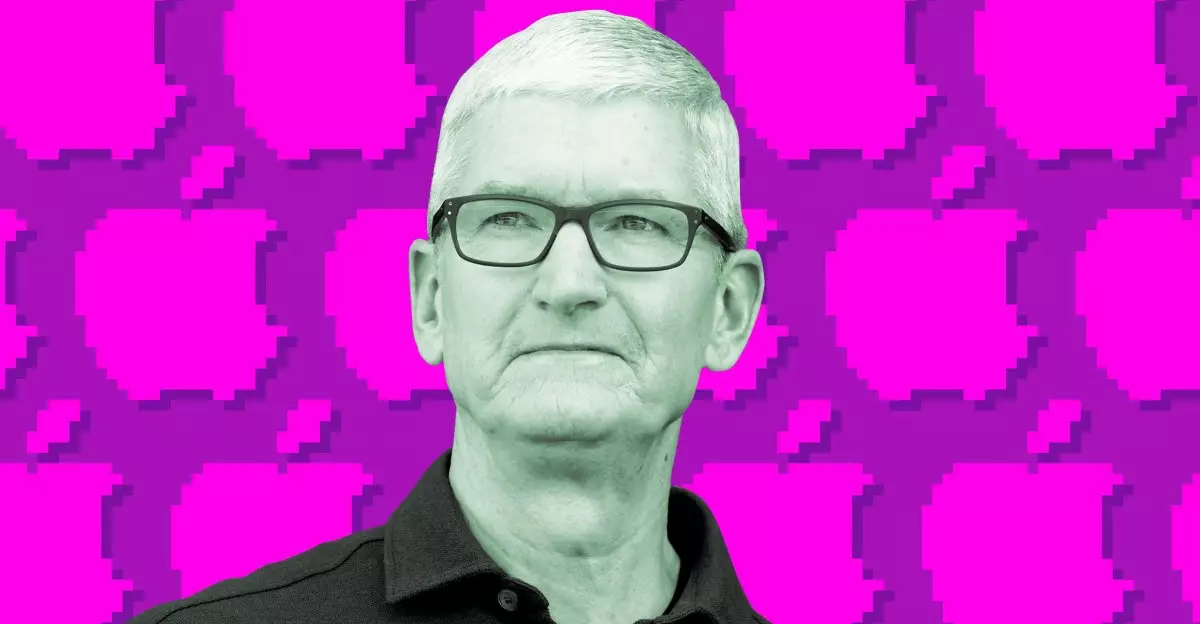In a rare and highly significant all-hands meeting, Apple’s CEO Tim Cook articulated a compelling vision that positions artificial intelligence not merely as a technological trend, but as the next monumental evolution akin to the internet or mobile computing. This pronouncement signals a decisive pivot in Apple’s strategy, emphasizing that AI will be central to future product innovation, user experience, and competitive differentiation. While Apple has historically been cautious—often waiting for the right moment to innovate—Cook’s optimistic tone suggests the company is now fully committed to leading the AI revolution.
What’s noteworthy is Apple’s acknowledgment of its past hesitation: the company has often been a latecomer to transformative markets but has excelled at perfecting products that dominate. Now, driven by the scale and scope of AI, Apple seems determined to take a proactive stance, investing heavily to reshape its trajectory. Such a move is less about chasing rivals and more about reasserting Apple’s role as a pioneer shaping the future. This approach reflects a strategic understanding that AI, carefully integrated, could redefine everything from device functionality to services and user engagement.
Challenges and Setbacks: The Path to True Innovation
Despite this ambitious outlook, challenges loom large. Apple’s experience with AI so far has been inconsistent—delayed features, ambitious plans that flounder, and high-profile staffing losses to competitors like Meta highlight the uphill battle ahead. The delayed rollout of Siri’s next-generation capabilities exemplifies the difficulties in balancing innovation speed and quality, reinforcing the notion that Apple is wrestling with fundamental technical hurdles.
The company’s initial strategy to build a hybrid architecture for Siri was a step towards integrating large language models (LLMs), but it proved insufficient for Apple’s high standards. Moving all functionalities to a new, unified architecture signals not just a technical recalibration but also a recognition that achieving Apple’s iconic quality in AI demands a more integrated and perhaps more risky technological leap. Apple’s willingness to overhaul its approach underscores a maturity: the realization that superficial upgrades won’t suffice, and only deep, fundamental shifts can secure a leadership position.
Talent, Competition, and the Risk of Falling Behind
Another critical issue is the talent drain caused by aggressive hiring by rivals like Meta, which has embarked on a “superintelligence” hiring spree. Apple’s erosion of its AI talent pool could undermine its future efforts unless it moves swiftly to retain top minds or attract new innovative talent. This talent war is the unspoken undercurrent of Apple’s AI ambitions; without a sustained pipeline of expertise, the company risks falling into the trap of late adoption once again.
However, Apple’s historical resilience and disciplined focus suggest that it possesses the internal resources and brand allure necessary to overcome these setbacks. If Cook and Federighi are serious about making AI central to Apple’s future, aggressive talent acquisition, strategic partnerships, and relentless R&D investment will be crucial. The company’s acknowledgment of how “rarely being first” has historically been offset by Apple’s obsessive pursuit of quality and user-centric design offers hope that the upcoming AI push will be both innovative and refined.
Apple stands at a crossroads. The leadership’s confident assertions about AI’s importance and their willingness to undertake significant overhauls point to a future where Apple may not just follow industry trends but shape them. Whether this bold vision materializes into tangible, revolutionary products remains to be seen, but what’s clear is that Apple’s long-term success will hinge on its ability to translate its strategic boldness into real technological breakthroughs.


Leave a Reply